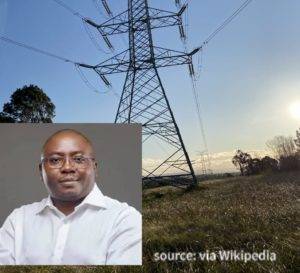Minister of Power, Mr Adelabu, has disclosed alarming figures regarding the indebtedness of consumers and the subsidy shortfall plaguing Nigeria’s power sector. During a press conference in Abuja on Wednesday, Mr Adelabu revealed that consumers owe Generation Companies (GenCos) a staggering N1.3 trillion, while the country’s debt to gas companies stands at $1.3 billion. This revelation underscores the dire financial situation crippling the sector, exacerbating its operational challenges.
Despite a meager allocated subsidy budget of N450 billion for the year, Mr Adelabu emphasized that the ministry requires over N2 trillion to effectively subsidize power. The shortfall raises concerns about the sustainability of government support in ensuring affordable electricity for Nigerians amidst mounting financial constraints.
Operational Challenges and Infrastructure Deficiencies
Mr Adelabu highlighted various operational challenges contributing to the recent spate of grid collapses since December 2023. Factors such as gas shortages, outdated grid machinery, limited distribution capacity, and damages to power stations in the North-East region have collectively undermined the stability of the national grid. The repeated collapses not only disrupt power supply but also impede economic activities and exacerbate social hardships for millions of Nigerians.
Moreover, the Transmission Company of Nigeria’s revelation of over 100 uncompleted projects due to fluctuating foreign exchange rates sheds light on the infrastructural deficiencies plaguing the sector. Delays in project completion not only impede progress but also strain resources, exacerbating the sector’s financial woes. The decision to halt new contracts until ongoing projects are completed reflects a prudent approach to managing resources and prioritizing existing commitments.
Efforts Towards Improvement and Security Enhancement
Despite the daunting challenges, Mr Adelabu outlined initiatives aimed at enhancing the sector’s resilience and performance. The provision of over N50 billion in the 2024 budget for the construction of mini-grids signifies a commitment to extending electricity access to remote areas, addressing disparities in power distribution. Additionally, the minister’s warning to electricity distribution companies (DisCos) underscores the imperative for improved service delivery to consumers, emphasizing accountability and efficiency in the sector.
Furthermore, Mr Adelabu’s engagement with the National Security Adviser, Nuhu Ribadu, to bolster the security of power infrastructure underscores a proactive approach to mitigating threats and safeguarding critical assets. Strengthening security measures is essential to averting sabotage and ensuring the uninterrupted functioning of power facilities, crucial for sustaining economic development and social stability.
Minister Mr Adelabu’s revelations shed light on the multifaceted challenges facing Nigeria’s power sector, from financial woes and operational hurdles to security threats. Addressing these issues requires concerted efforts from government stakeholders, industry players, and the broader society to foster sustainable solutions and ensure reliable and affordable electricity for all Nigerians.
Nigeria’s Struggling Power Sector: Mr Adelabu Minister of power’s Efforts Fall Short
The Minister of Power, Mr. Adelabu, continues to grapple with the persistent challenges plaguing Nigeria’s electricity sector, despite concerted efforts to address them. The nation’s power infrastructure remains largely inadequate and unreliable, posing a significant obstacle to economic growth and development. Despite numerous interventions and initiatives aimed at improving the situation, the desired outcomes have remained elusive.
The lack of a functional power sector has become a significant impediment to Nigeria’s economic advancement. Businesses, both small and large, suffer from frequent power outages and erratic supply, leading to increased operational costs and reduced productivity. Foreign investors are often deterred by the unreliable power supply, further hampering efforts to attract much-needed investment into the country. The situation has become even more dire following the removal of subsidies on petroleum products, as the burden of increased electricity tariffs exacerbates the already challenging economic conditions faced by the populace.
Calls for Policy Reevaluation Amid Subsidy Removal Controversy
As the government grapples with the aftermath of removing subsidies on petroleum products, calls for a reassessment of its policies in the electricity sector have grown louder. Many argue that the removal of subsidies on electricity tariffs could compound the hardships faced by ordinary Nigerians, already reeling from the economic impact of the subsidy removal on fuel prices. The potential for further escalation of living costs, particularly for low-income households, raises concerns about the social implications of such a move.
While subsidy removal is often touted as a necessary step to encourage efficiency and sustainability in the power sector, critics argue that it must be accompanied by comprehensive measures to mitigate its adverse effects on the most vulnerable segments of society. The government is urged to prioritize investments in infrastructure and technology to improve electricity generation, transmission, and distribution capabilities. Additionally, there are calls for greater transparency and accountability in the management of funds allocated to the power sector, to ensure that resources are utilized effectively to address the underlying challenges.
The perennial problems afflicting Nigeria’s electricity sector continue to pose significant challenges to the nation’s economic development efforts. While the government’s initiatives are commendable, there is a pressing need for a comprehensive review of policies and strategies to achieve meaningful progress. Balancing the imperative of subsidy removal with the need to protect the welfare of the populace requires careful deliberation and proactive measures to address the root causes of the power sector’s dysfunctionality. Only through concerted efforts and effective governance can Nigeria hope to overcome its electricity woes and unleash its full economic potential.
Table of Contents
Discover more from OGM News NG
Subscribe to get the latest posts sent to your email.














